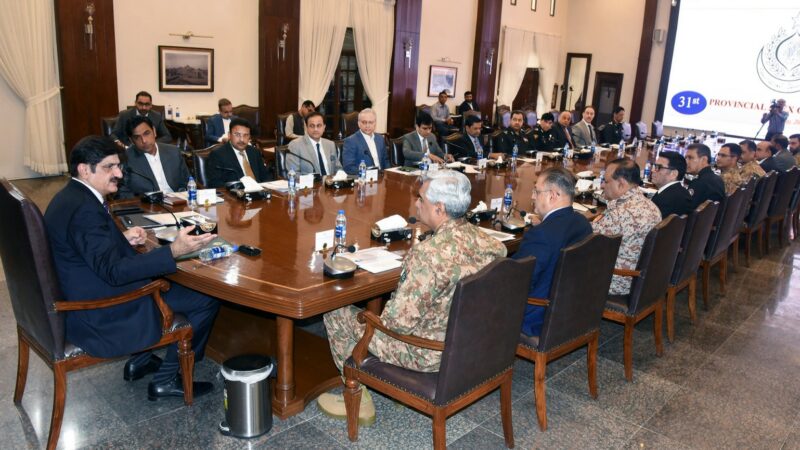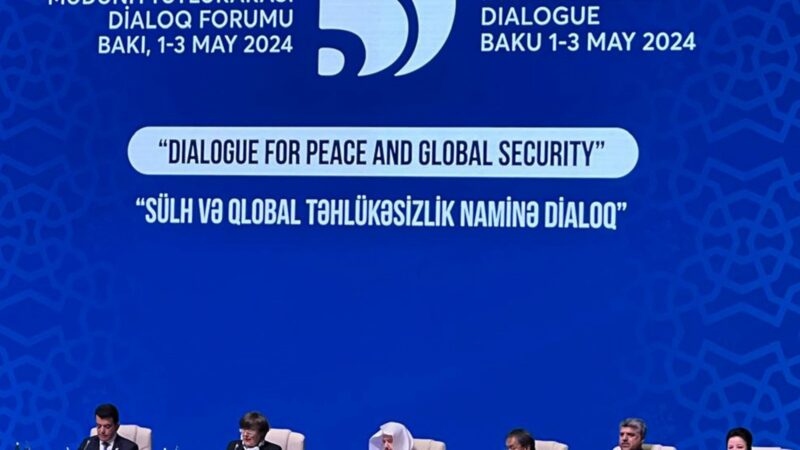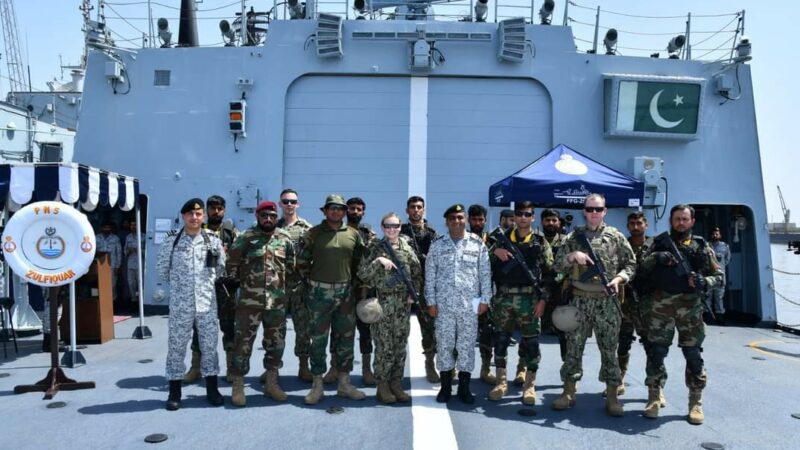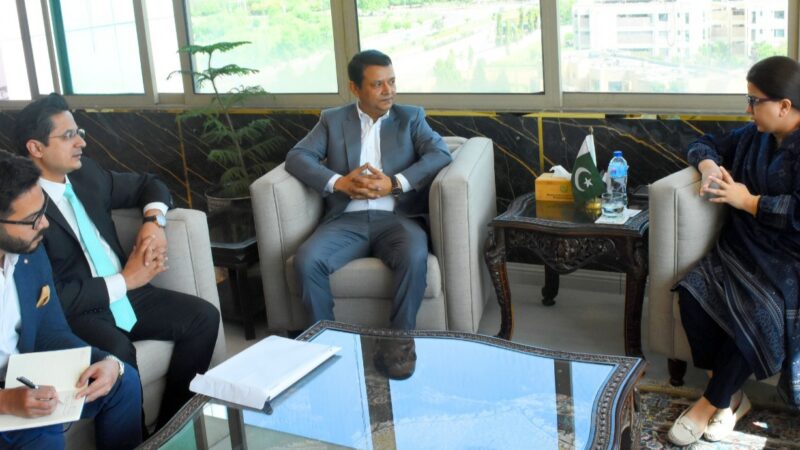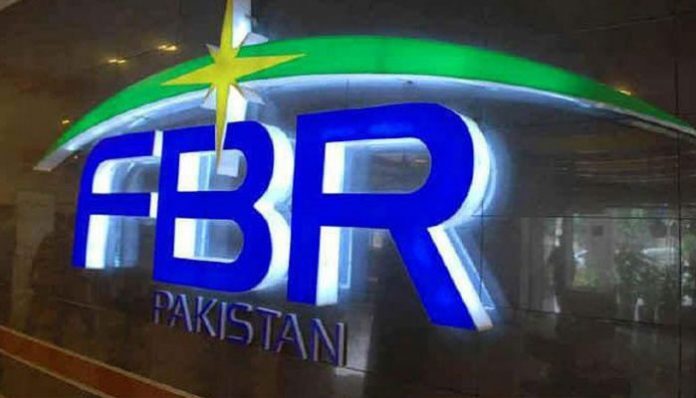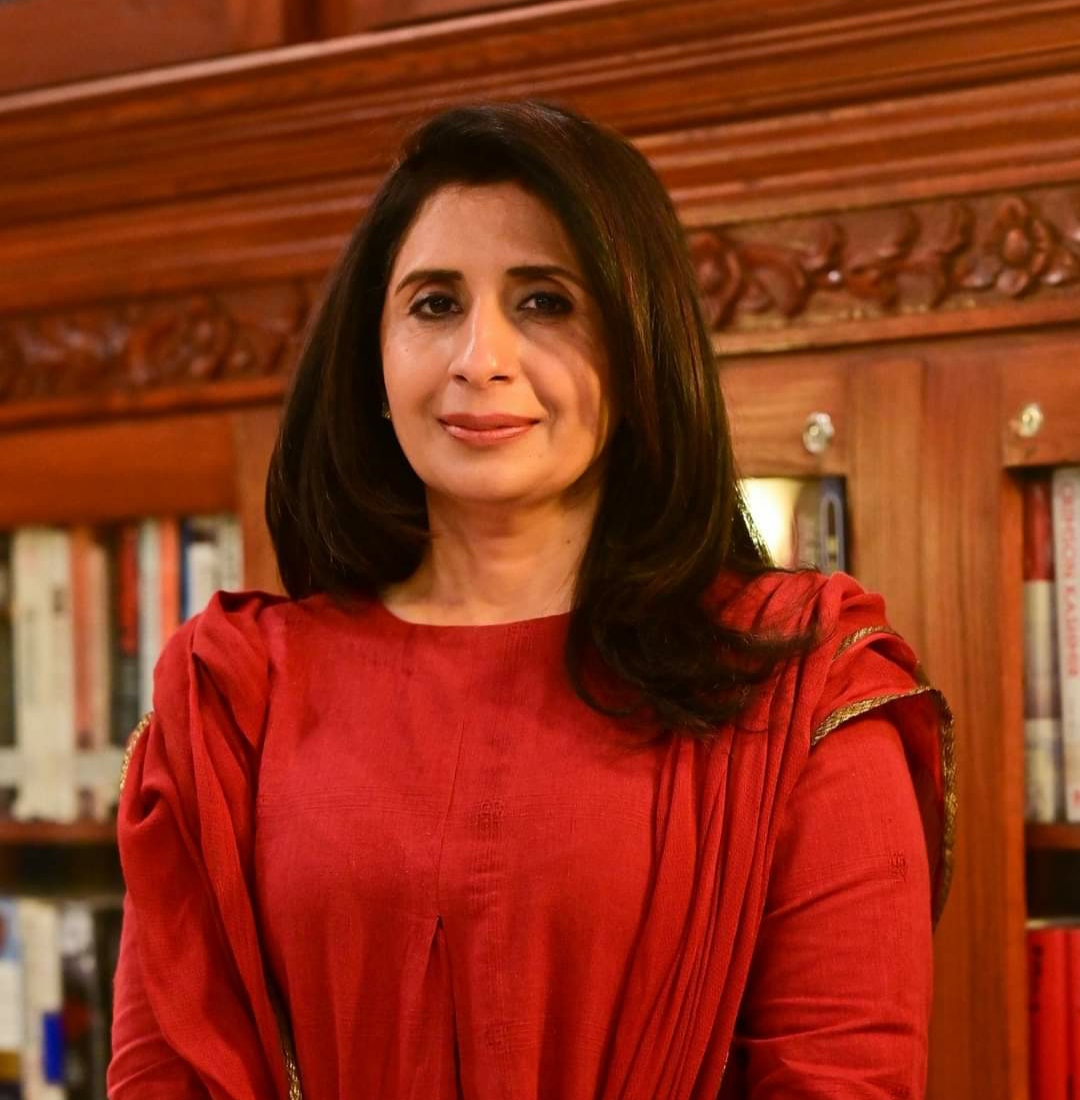Transcript of the Press Briefing by the Mumtaz Zahra Baloch Spokesperson Ministry of Foreign Affairs
Thursday, 28th December 2023
Assalam-o-Alaikum,
Welcome to the Foreign Office and thank you for joining us for the Year End Briefing.
Let me begin by extending season’s greetings to you and your families and our best wishes for 2023.
The year 2023 was an active year for Pakistan’s diplomacy. Our diplomatic efforts were aimed at increasing Pakistan’s international profile and building relations with countries in all regions of the world with frequent high-level exchanges and visits.
During the first half of 2023, former Prime Minister undertook official visits to Azerbaijan, Turkiye, the United Arab Emirates and the United Kingdom. Former Foreign Minister, Bilawal Bhutto Zardari visited Iraq, Hungary, Japan, Jordan, Lithuania, Russia and the United Arab Emirates. While Former Minister of State Hina Rabbani Khar undertook official visits to Belgium, Denmark, Norway, Qatar, Sri Lanka, Sweden, Uzbekistan, and the United Kingdom.
In the later half of 2023, Prime Minister Anwaar-ul-Haq Kakar undertook bilateral visits to Kuwait and the United Arab Emirates. He attended important multilateral conferences in China, Saudi Arabia, Uzbekistan, United Arab Emirates and the United States.
Foreign Minister Jalil Abbas Jilani has visited China, Azerbaijan, United Arab Emirates, and United Kingdom to attend multilateral conferences and Meetings. In London, he chaired the 10th Commonwealth Youth Ministers’ Meeting.
Pakistan also hosted high level delegations from Afghanistan, Belarus, China, Denmark, Ethiopia, Germany, Iran, Russia, Rwanda, Saudi Arabia, Turkiye, Ukraine, Uzbekistan, United Arab Emirates, United Kingdom, United States and the European Union.
We continued to pursue political and sectoral dialogues to institutionalize bilateral partnerships. Bilateral political consultations were held with Australia, Azerbaijan, Belgium, Brunei, Bulgaria, China, Denmark Finland France, Georgia, Iran, Ireland, Japan, Kazakhstan, Malaysia, Mexico, Netherlands, Norway, Poland, Portugal, Russia, Spain, Sweden, and Turkiye.
Pakistan continued to pursue active multilateral diplomacy in 2023. There was sustained engagement with the United Nations, Organisation of Islamic Cooperation, Economic Cooperation Organization and Shanghai Cooperation Organisation. We are encouraged with the results of our diplomatic efforts in multilateral settings.
At the beginning of the year, Pakistan hosted the International Conference on Climate-resilient Pakistan in Geneva in collaboration with the United Nations to gain support for Pakistan in the aftermath of the devastating floods of 2022. In September, Foreign Minister chaired the 10th Commonwealth Youth Ministers’ Meeting in London. And in October, Pakistan assumed the chairmanship of SCO Heads of Government Meeting.
In view of our enduring commitment to inclusive multilateralism, Foreign Minister of Pakistan attended the SCO Council of Foreign Ministers held in May in Goa, India. Pakistan also made a formal request to join BRICS. We hope that BRICS will move forward on Pakistan’s request in line with its commitment to inclusive multilateralism.
Pakistan won elections of several important multilateral bodies and institutions. These included: membership of United Nations Economic and Social Council (ECOSOC); Executive Board of the United Nations Educational, Scientific and Cultural Organization (UNESCO); Executive Council of the Intergovernmental Oceanographic Commission; Executive Council of the OPCW; Vice-Chair of UNESCO Executive Board; and Chair of the Conference of Parties of Chemical Weapons Convention.
We continued to reinforce our traditional partnerships with China, Türkiye, Saudi Arabia, and the wider Islamic world. These relationships are based on mutual trust and friendship and characterized by a tradition of robust dialogue and exchange of bilateral visits.
Pakistan and China reaffirmed commitment to China-Pakistan Economic Corridor, which completed ten years in 2023. Bilateral engagement and cooperation remained robust. The two countries held bilateral consultation mechanisms on consular, maritime affairs, counter-terrorism, arms control and nuclear proliferation.
Relations with Türkiye continued to advance with high- level exchanges and cooperation. A significant outcome this year was the culmination of the MILGEM Class Corvette project initiated in 2018. Under this project, four corvettes were built jointly for the Pakistan Navy symbolizing close partnership between Pakistan and Türkiye in defence production. In May, Pakistan- Türkiye ‘Trade in Goods Agreement’ came into effect presenting an opportunity of great potential in economic domain.
Pakistan and Saudi Arabia continued to maintain high-level dialogue and strategic engagement. In 2023, several important understandings and agreements were reached to bolster bilateral trade and investment especially in energy and IT sectors. The two sides signed the Agreement on the Road to Makkah Project to facilitate the hujjaj from Pakistan with the shifting of immigration and customs clearance process during the hajj season from Saudi Arabia to Islamabad.
With the establishment of SIFC, economic cooperation and engaged with GCC countries gained momentum, especially in the domain of energy and information technology. Pakistan-GCC agreed to conclude free trade agreement which will be the first such Free Trade Agreement (FTA) concluded by the GCC with any country.
Relations with the United States continued to advance bilateral dialogue and cooperation. In addition to exchange of high-level visits and meetings, the two countries held 9th TIFA Ministerial Council and dialogues on Climate Change and Environment; Health, Energy security; Counter-Terrorism, and Defence.
Pakistan-Russia relations maintained a positive trajectory as the two countries exchanged several high-level visits. Inter-Governmental Commission on Trade, Economic, Scientific and Technical Cooperation and Bilateral Political Consultations were also held during the year.
Our region remains an important focus of our foreign policy. Pakistan has consistently expressed its desire to see a peaceful, prosperous, stable and connected Afghanistan. So that Afghanistan emerges as a trade and energy-connectivity conduit to our region.
As a firm adherent of regional approaches to the situation in Afghanistan, Pakistan participated in meetings and mechanisms aimed at promoting peace in Afghanistan. It also remained committed to dialogue and engagement with Afghanistan as the two countries continue to explore avenues of cooperation especially in economic domain. We also remain engaged with Afghan authorities on issues related to security and border management.
This was a significant year in Pakistan-Iran relations. In May 2023, the two sides inaugurated ‘Mand-Pishin Border Sustenance Marketplace’ and ‘220 kV Polan-Gabd Electricity Transmission Line’ projects. The two sides agreed to institutionalize Bilateral Economic Consultations and signed the five Year Strategic Trade Cooperation Plan (2023-28) in June that envisages achieving bilateral trade target of US $ 5 billion.
In pursuance of our vision of regional connectivity and mutual prosperity, Pakistan also continued its robust engagement with countries in Central Asia. Within the context of ECO, Pakistan promoted regional cooperation in trade, transport, connectivity, energy, tourism and economic growth and productivity.
In 2023, Pakistan continued to cooperate and engage with our partners in Europe to develop deeper economic collaboration, cooperation in climate action and finding opportunities in higher education and employment. We also continued to engage with EU on the importance and utility of Generalized Scheme of Preferences Plus (GSP+).
In March, European Union removed Pakistan from the list of high-risk countries recognizing Pakistan’s performance in overcoming technical issues in its Anti-Money Laundering / Countering Financing of Terrorism.
Counterterrorism, arms control and Climate Change were key areas of engagement with bilateral and regional partners. Bilateral talks were held on counterterrorism with China, Iran, Russia, United Kingdom, United States, and the European Union.
In line with the principles of policy of the Constitution, we continued to advance engagement with Islamic countries both bilaterally and in the framework of OIC. Pakistan participated actively in OIC Contact Groups on Palestine and on Jammu & Kashmir. Pakistan persistently advocated the causes of the Muslim Ummah including protection of holy Islamic holy sites and on Islamophobia and acts of Quran burnings in Europe.
Pakistan continued to advocate vociferously for the Palestine cause and supported international initiatives calling for an end to siege in Gaza and provision of immediate, sustainable and sufficient humanitarian aid. Pakistan also sent humanitarian supplies for the people of Gaza.
Pakistan also reinforced its outreach and dialogue continued with ASEAN and its member states with several high level meetings and visits and implementation of ASEAN-Pakistan engagement plan.
Pakistan continued to pursue a policy of peaceful neighborhood, based on mutual respect and sovereign equality, with all countries of South Asia region. Relations with Sri Lanka, Maldives, Nepal, Bhutan and Bangladesh witnessed positive developments with high level engagement and dialogue.
There were no major developments in Pakistan-India relations. A Hindutva inspired nationalist government continues to act as a regional bully and create hurdles in development of normal bilateral relations. Pakistan has consistently maintained that bilateral relations cannot fully normalize until the resolution of the outstanding disputes, especially the core dispute of Jammu and Kashmir.
Under the Pakistan-India Protocol on Visits to Religious Shrines of 1974, Pakistan issued 6824 visas to Sikh and Hindu Indian pilgrims from India to visit Pakistan to attend various religious festivals and occasions. Pakistan released 486 Indian prisoners this year of which 380 were civilians and rest were fishermen.
India continued to use its military might to suppress the people of IIOJK. Throughout the year, Pakistan raised its voice for the people of Kashmir at all relevant bilateral and regional forums. We also categorically rejected Indian Supreme Court’s judgement on the status of Jammu and Kashmir.
The Foreign Minister of Pakistan wrote letters to the leadership of the UN, OIC and the EU inviting their attention to different developments in IIOJK, including the latest illegal decision of Indian Supreme Court.
The Organization of Islamic Cooperation (OIC) expressing its consistent and unequivocal support to the Kashmir Cause. Two meetings of OIC Contact Group on Jammu & Kashmir were held in March and September 2023.
OIC Secretary General’s Special Envoy on Jammu and Kashmir and a delegation of British Parliamentarians undertook visits to Azad Jammu and Kashmir to obtain first-hand information of the situation on ground. These visits also brought a spotlight on the plight of the Kashmiri people and atrocities of Indian occupation forces.
The well-being, welfare and facilitation of Pakistani diaspora remains our priority. Our Missions abroad continue to facilitate overseas Pakistanis and provide relief and assistance to those in distress.
In 2023, several measures were taken to move towards automation for effective and responsive service delivery for overseas Pakistanis. In February, online attestation of Power of Attorney for Overseas Pakistanis was launched globally in all Pakistan Missions Abroad. In March, Pakistan ratified the Apostille Convention. The Government of Pakistan has stated accepting Apostille documents issued by contracting parties to the convention.
Pakistan’s Embassy in Khartoum supported by our Missions in Jeddah and Cairo safely evacuated 1500 Pakistanis in May-June 2023. Similarly, 68 Pakistani residents were evacuated from Niger in July 2023.
Our relevant missions also coordinated with the local authorities in Italy, Greece and Libya to rescue Pakistanis aboard capsized migrants boats and to repatriate dead bodies.
The Ministry of Foreign Affairs and Pakistani Mission abroad will continue to promote Pakistan’s external relations and protect its interests at the global level.
Thank you!
***
Abdullah Mohmand, Dawn TV: It has been reported that the Indian government has banned the Muslim League Jammu Kashmir, Masarrat Alam faction. How does Pakistan see this development? Second, it has been reported that Pakistan have deported some Afghans who were waiting for resettlement in United States. And lastly, Pakistan has reportedly agreed to extend the deadline that all those illegal Afghans who are awaiting resettlement. Has Pakistan shown some agreement on this question?
Spokesperson: Your second question pertains to the Ministry of Interior and they will be in a better position to share details on the implementation of the Illegal Foreigners Repatriation Plan. As far as your question about India’s decision of yesterday to ban the Muslim League Jammu and Kashmir Masarrat Alam faction, Pakistan strongly condemns this decision declaring Muslim League Jammu and Kashmir Masarrat Alam faction as an unlawful association for a period of five years. The curbs on genuine voices of Kashmiri people remain persistent in IIOJK. The Muslim League Jammu and Kashmir Masarrat Alam faction is the fifth Kashmiri party banned under the Unlawful Activities Prevention Act after the Jammu and Kashmir Liberation Front, Jamaat e Islami Jammu and Kashmir, Dukhtaran-e-Millat and Jammu and Kashmir Democratic Freedom Party. This party is led by a prominent Kashmiri leader, Masarrat Alam Bhatt who remains incarcerated. The total period of his detention exceeds 20 years. Suppression of Kashmiris and incarceration of their leadership reflect India’s disregard for international norms and human rights law and are in stark contrast to all its total claims of being the largest democracy in the world. We urge India to forthwith lift the curbs on the banned political parties in IIOJK, release all political prisoners and create conditions for realization of the inalienable right of self-determination of Kashmiris in accordance with the United Nations Security Council resolutions.
Anwar Abbas, Bol News: Ma’am, I want to know has recently India requested Pakistan to extradite Hafiz Saeed or someone else via diplomatic channels regarding Pulwama attack?
Spokesperson: This question is based on speculative reporting and we would not like to comment on speculative reports.
Anas Mallick, Capital TV: Over the weekend, we saw a couple of tweets from the EU and the Norwegian Embassies with regards to the alleged mishandling by Islamabad police of the Baloch missing persons protests. Do you have any comments on that?
Spokesperson: First of all, the Constitution of Pakistan guarantees freedom of assembly and expression and there are laws in place for Pakistan to deal with such cases internally. Our courts are independent and have taken decisions in this regard on several occasions. As far as the interference of foreign embassies in Pakistan’s internal affairs is concerned, that is regrettable, and our response to those embassies is that Pakistan is fully capable of managing its own affairs and protecting the rights of its people.
Khawaja Nayyar Iqbal, Media Today: Indian occupation forces have launched an operation in Poonch district of the Illegally Occupied Jammu and Kashmir on a large scale. Please comment on it.
Spokesperson: Indian occupation forces have continued to suppress the people of Jammu and Kashmir over the last several decades and recent developments are no surprise for anyone. The people of Jammu and Kashmir have a right to self-determination and they will never accept Indian subjugation. Pakistan condemns all acts that violate the rights of Kashmiri people and perpetuate the suppression of Kashmiri people.
Mateen Haider, G News: So, Pakistan continued, definitely to build relations and promote bilateral cooperation with China but Pakistan was definitely diplomatically under pressure by United States to keep away from China and get closer with India and resolve issues. So, in 2024, do we see resumption of dialogue between Pakistan and India and easing of tensions? And, will Pakistan maintain balance in its relations between Beijing and Washington?
Spokesperson: I do not agree with the premise of your question. Pakistan has always maintained that our relations with countries around the world will progress on their own. We do not believe in the zero-sum foreign policy. Our relations with China are time tested and strategic. Pakistan will continue to further advance this relationship on the basis of mutual respect and confidence that characterizes this relationship. Our relationship with the United States is also very old and Pakistan and the United States are engaged in advancing dialogue in a number of areas, as I highlighted in my opening remarks. We will continue to further enhance our relationship with the United States. As I said earlier, Pakistan is committed to a peaceful neighborhood. We would like to have peaceful relations with all countries in the region, including with India. We have said that the environment for peace and dialogue must be created and India should take steps for creation of this environment. Our dialogue with India, whenever it takes place, will be based on equality, on mutual respect and with the Jammu and Kashmir dispute as a priority issue for Pakistan.
Syed Asif Ali, Din News: Ma’am, as you said that Pakistan issued visas to 6000 Sikh and Hindu pilgrims and released 300 plus India civilians. How many Pakistanis have been issued visas from India and how many Pakistani prisoners have been released?
Spokesperson: I do not have that data with me. The Indian Embassy may have these details as they are the ones who issue visas to Pakistanis.
Abdul Rehman, Al Jazeera: You spoke about the free trade agreement with the GCC countries. Will you please give us more details about this?
Spokesperson: Pakistan and GCC have come to an understanding on principles of the free-trade agreement. A framework agreement has been signed. The talks are ongoing on finalizing some additional aspects which we hope will be resolved soon for early operationalization of the FTA.
Thank you!

